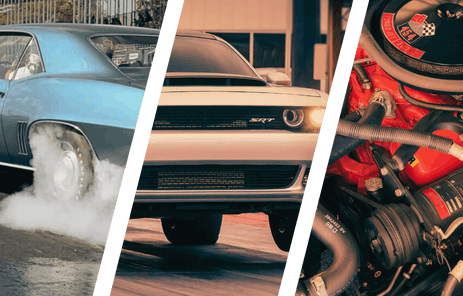A big part of the entire aftermarket industry just may be built on the concept “If I buy this part for my car, it will make more horsepower, improve my fuel mileage, radically improve my status among my car guy buddies, and overall improve my own self-worth.” What brought all this on was a friend’s recent comment. He told me he had just finished installing a new ignition system on his big-block Nova. While he wanted to think that his car ran better because of his efforts, he wasn’t entirely convinced. His comment: “It’s entirely possible this is just part of the Placebo Effect.”
This is a well-known positive psychological effect felt by a patient who complains of a recurring ailment for which there appears to be no cause and whose doctor prescribed nothing more powerful than a sugar pill, or “placebo.” In clinical research, if a group of patients are given a treatment, a small number are given a placebo without being told. Often, some of these participants report amazing improvement in their condition despite the fact they were did not receive the actual prescription drug being researched.
The Placebo Effect is also why doctors hand their young patients a lollypop after sticking them with a needle for an inoculation.
Right after I turned 16, I bought my first car, a ’66 389, four-speed GTO. I can remember taking a half-day or so just to wash and wax my new infatuation. I even took it to the park to wax it, hoping people would drive by on that lovely summer afternoon and admire my new machine. Of course, as soon as I was finished, I took it out of the road just to show off my handiwork. I remember being immediately struck with the notion that my car seemed to run better. It seemed like it responded to the throttle better, had more power, and was overall a much better machine than the one I had driven only an hour before. This was my first experience with the Placebo Effect.
My rational side immediately protested that the car doesn’t run better just because it has a coat of wax. But my emotional side was convinced otherwise. Of course, my youthful, romantic side eventually won that little internal struggle. And now, more than 40 years later, the fight continues.
I did some work on my ’64 El Camino just the other day and took it out for a lunch run only to discover that while fixing one problem, another had surfaced. The always effervescent, feel-good angel immediately proclaimed success and suggested an immediate reward from the 7-11. My more rational side immediately countered with “Yeah, so what? The master cylinder still leaks and you’ve known about that for weeks. Get back to work!” So here we are, several decades later still fighting that same, shopworn battle.
I have a feeling everybody deals with this. My wife likes to watch those home improvement shows where the clueless couple buys a fixer-upper and dives in with all kinds of god intentions. Of course, because this is reality TV, they always succeed and are always exceedingly thrilled with the results. That’s because they are gently prodded and guided by the competent host who has been through this a hundred times – and aided by a professional film editor. I sometimes watch these shows with the jaded attitude of decades of automotive experiences that closely parallel the near disasters that weekly happen on TV. The difference is their congenial host always saves the day for them.
In my case, the reality is that not all projects succeed because this isn’t TV and I have no film editor to bail me out. The reality is that when these mini-disasters occur, the first victim is the feel-good Placebo Effect.
Despite this somewhat negative viewpoint, I take my lumps when things go bad, and yet I immediately volunteer for the next great adventure – knowing that there will be no omniscient TV show to hold the net when everything goes awry. Just thinking about that makes me feel better already!
You might also like
Museum Restores Rare 1993 Black Rose Corvette ZR-1
The National Corvette Museum is restoring a rare 1993 Black Rose Corvette ZR-1. This project aims to preserve one of only 11 examples made.


